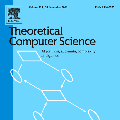Theoretical computer science (TCS) is a subdiscipline of computer science that studies the mathematical foundations of computational and algorithmic processes and interactions. Work in this field is often recognized by its emphasis on mathematical technique and rigor. At the heart of the field are questions surrounding the nature of computation: What does it mean to compute? What is computable? And how efficiently? Every ten years or so the TCS community attends visioning workshops to discuss the challenges and recent accomplishments in the TCS field. The workshops and the outputs they produce are meant both as a reflection for the TCS community and as guiding principles for interested investment partners. Concretely, the workshop output consists of a number of nuggets, each summarizing a particular point, that are synthesized in the form of a white paper and illustrated with graphics/slides produced by a professional graphic designer. The second TCS Visioning Workshop was organized by the SIGACT Committee for the Advancement of Theoretical Computer Science and took place during the week of July 20, 2020. Despite the conference being virtual, there were over 76 participants, mostly from the United States, but also a few from Europe and Asia who were able to attend due to the online format. Workshop participants were divided into categories as reflected in the sections of this report: (1) models of computation; (2) foundations of data science; (3) cryptography; and (4) using theoretical computer science for other domains. Each group participated in a series of discussions that produced the nuggets below.
翻译:理论计算机科学(TCS)是计算机科学的一个次级学科,它研究计算和算法过程及互动的数学基础。这一领域的工作往往通过强调数学技术和严谨而得到承认。该领域的核心是围绕计算性质的问题:计算意味着什么?计算什么?如何效率?TCS社区每10年左右参加一次展望讲习班,讨论TCS领域的挑战和最近的成就。讲习班及其产出既是为了反映TCS社区,也是有关投资伙伴的指导原则。具体地说,讲习班产出由若干精子组成,每个精子都概述一个特定点,以白纸的形式加以综合,用专业图形设计师制作的图形/滑块加以说明。第二次TCSVision讲习班由SIGACT促进理论计算机科学委员会组织,于2020年7月20日举办。尽管会议是虚拟化的,但有76名以上的参与者,大多数来自美国,但也有几个来自欧洲和亚洲的理论领域的参与者,他们利用每一系列的计算机模型参加了这个系列的讨论。




